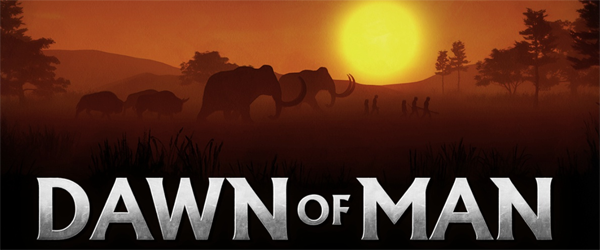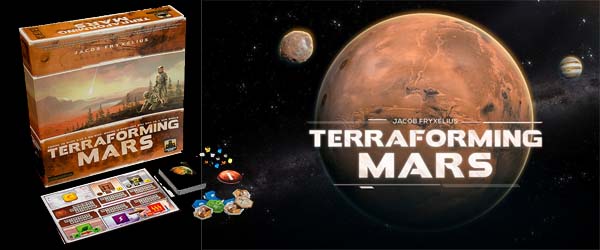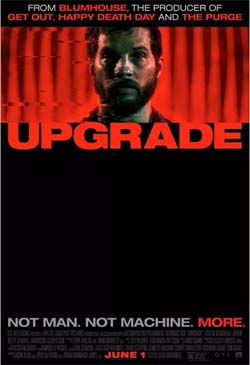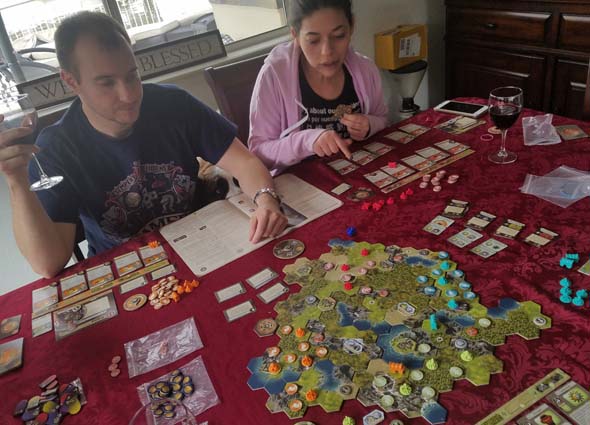
There was a surprise indie hit on Steam a few months back. The prehistoric city-builder / management sim Dawn of Man saw lots of buzz around its release date and sold well beyond the developers' expectations. Did you buy it? Is it on your radar, but you haven't purchased it yet? Have no idea what Dawn of Man is? Well, it's a pretty good indie game that is well worth a look for those into city-builders and management sims. If you liked Banished (and you should have liked Banished if you played it), then I would say you owe it to yourself to give Dawn of Man a look.
I released an early version of this guide (in video form) to my Patreon backers.
Dawn of Man can be a difficult game to figure out, especially as you work your way into the middle sections of the game where the options available to you suddenly explode into a myriad of possibilities. Some of these difficulties can be traced back to the game having a sometimes-lackluster U.I. that makes some of the management more difficult than it needs to be. Other difficulties are simply things that you have to experiment with to figure out.
Well, I've done a bit of experimenting, and am happy to offer some of my observations. I hope these tips will help you to get into Dawn of Man with less of the headaches and growing pains that I experienced, so that you can get to enjoying this surprise indie hit more quickly.
... [More]
5097ffe0-fe80-44c3-8f07-9d90fba843e3|3|5.0
Tags:Dawn of Man, Madruga Games, indie gaming, prehistoric, strategy, city management, Steam, PC, hunting, work area, mammoth, technology, paleolithic, mesolithic, neolithic, copper age, bronze age, iron age, raider, YouTube

Steam recently released a digital version of the board game Terraforming Mars. I haven't played the digital version (which is getting "mixed" and negative reviews at the time of this writing), but I have played the board game version. It's pretty fun, and in celebration of the latest NASA probe landing on the surface of Mars, I thought I'd launch a review of the board game.
Terraforming Mars has a wide variety of gameplay mechanics, which makes it kind of difficult to clearly categorize it. It also makes it a little difficult to teach the game to new players efficiently. It's not an overly-complicated game, however. It's just a lot of different concepts that you have to explain. Regardless, I've been able to get through learning games with new players in about three or three-and-a-half hours (including the rules explanation). So it's not overly burdensome to learn and play. It's also not terribly hard to simply play a sample round to teach the game flow, and then mulligan the game if any players feel they dug themselves into a hole.
Terraforming Mars has multiple distinct mechanics, ranging from tableau-building to tile-placement.
There's tile placement with adjacency bonuses. There's resource management. There's action economy. There's a little bit of tableau building and hand management. There's even a certain degree of bluffing. Playing with the non-basic corporations adds variable player powers, You can even optionally play with card drafting! Pretty much the only thing that we're not doing is loyalty / betrayal mechanics. Despite including so many varying game mechanics, nothing feels out of place, and everything fits together well.
The rulebook includes footnotes explaining the scientific basis for the rules and mechanics.
Depending on how you play, however, the actual game board and your tableau of cards can sometimes feel very disparate. If you're not actively placing tiles on the board, then the whole board can pretty much boil down to a score and prerequisite tracker. However, if you're avoiding placing tiles on the board, then you're probably going to lose, as I've yet to see a predominantly card-based strategy win the game.
The board itself includes a map of Mars' surface, and has notable landmarks on Mars clearly labeled. Unfortunately, the board only covers one half of Mars' surface, so there's some notable landmarks that are not included at all (perhaps the other side of the planet is an expansion?). The resource cubes are very shiny and pretty, and have an appropriately sci-fi aesthetic to them. The rulebook also includes little footnotes that explain some of the scientific bases for the game's rules and mechanics. it's like the kind of thing you might expect if Neil DeGrasse Tyson wrote a board game. Science and space nerds will probably really appreciate these efforts at scientific accuracy.
The resource cubes are pretty, but shift around very easily on the flimsy, card stock economy boards.
Other components besides the resource cubes are kind of cheap and flimsy though. The player economy boards are printed out on basic card stock. There aren't any slots or grooves for the production cubes to sit in, so they slide around very easily if the table is jostled, or if the economy board is shifted around. You may want to invest in some third-party replacements or overlays in order to solve this problem.
The box also doesn't have any inserts of any kind for storing components -- just a handful of plastic, zip-lock bags. They expect you to just drop all the cards in a plastic baggie and just toss them in the box haphazardly along with all the other pieces!
At a price point of $70 (USD), I expect more from a game's components! Fortunately, where the game lacks in production value, it more than makes up for in entertainment value!
... [More]
ef527080-aedf-4583-a72d-8d6ee9108d4f|0|.0
Tags:Terraforming Mars, Stronghold Games, Jacob Fryxelius, board game, Mars, space, science fiction, terraforming, technology, hex, tile, city, forest, ocean, temperature, oxygen, victory points

This one snuck up under the radar for me, and was a real pleasant surprise. Upgrade is a Blumhouse Productions film made by some of the same people who make Insidious, The Purge, and Saw, so the previews didn't really sell me on the idea of a clever sci-fi thriller. I was expecting more of just a gore-fest. There's some really over-the-top violence and gore, but the movie is paced well enough that every single graphic kill feels legitimately earned. The choreography is exceptional and creative, and might have been worth the ticket price alone, even if it weren't attached to such a well-made movie.
Where Upgrade surprised me, however, is the way that it is filled with small world-building details that really help to sell this idea of slightly-dystopian near-futurism, and the almost luddite level aversion that some people might have to the inevitable automation of our lives. It does this by being a small, simple story that has a sinister undertone, but which doesn't feel like it's trying to be too grandiose or overblown. This is basically a hard-R-rated feature-length episode of Black Mirror.
Upgrade has some very slick choreography, and some gruesome (but well-earned) violence.
The twist was, admittedly, very easy to see coming after about 10 minutes into the movie, and so the build-up to it makes the bulk of the movie feel kind of predictable. However, there was a second twist that did catch me off-guard. I'm not sure if the movie really builds up to that second twist properly, but maybe that's just me... [More]

Sid Meier's Civilization computer game seems ripe for conversion into a board game. The PC game is, after all, basically just a computerized board game that plays out on a grander scale. Sid himself was inspired by many classic board games, including Risk and Axis & Allies. Fantasy Flight has already taken a stab at trying to distill the core mechanics of Civ down into a digestible board game when they released Sid Meier's Civilization: the Board Game back in 2010. I really like that game, even though it is a bit bloated and unwieldy. Attempting to directly translate Civ's mechanics down into board game form unsurprisingly results in a fairly complicated game that takes a very long time to learn and play.
Fantasy Flight's approach this time around seems to be to develop an elegant board game, and then apply the Civilization license onto it. The result is a board game that feels much more distant from the computer game, but which plays much more smoothly as a board game.
Civilization, streamlined
Perhaps the biggest problem with the older Civilization board game is the game length and amount of downtime. Games could run for over five hours, and the fact that each player resolved their entire turn phase (city management or army movement) before moving onto the next player meant that you could end up sitting for 20 to 40 minutes, twiddling your thumbs and waiting for other players to resolve their turns. That is one of my biggest peeves with a lot of epic games: too much downtime.

A New Dawn is a very elegant game.
A New Dawn addresses that problem by having each player take only a single action in each of their turns. There are no phases; just take an action from your focus bar and then move on to the next player. Turns, therefore, are very quick, turnaround time is very short, and the game moves along at a rapid pace. This, ironically, serves to better maintain the "one more turn" addictive nature of the computer game. You might find yourself neglecting bathroom breaks for several turns because things are moving along so swiftly. Your turn is generally quick enough that you want to finish it before you step away or take a break, and other players' turns are so quick that you don't want to step away because you know it'll be back around to your turn in a few minutes.
Longer games with longer turns and more downtime can also often result in players outright forgetting what they were planning on doing by the time the turn gets back around to them. Either that, or the large amounts of moves and actions that the other players take changes the game state so much that, when your turn comes around, the thing you were planning on doing is no longer ideal -- if it's even possible.
That's rarely a problem in A New Dawn because each player does one thing on their turn, so the state of the board isn't radically changing between your turns. It's much more of a gradual change. That doesn't mean that other players can't disrupt your plans; they certainly can, especially when combat between players starts happening. It just means that you aren't going to be sitting there bouncing up and down in your chair waiting to pull off a spectacular move, only to have another player blow up all your plans at the last minute and leave you spending far too long wondering "What the heck do I do now?" when your turn starts... [More]
67fd088c-265a-4a60-939d-4c4027df3179|0|.0
Tags:Sid Meier's Civilization, Sid Meier's Civilization: A New Dawn, Sid Meier's Civilization the Board Game, Fantasy Flight, Firaxis, 2K Games, board game, strategy, empire-building, focus bar, cities, world wonder, technology, culture, war, barbarians, James Kniffen
Netflix's extraordinary exclusive series Black Mirror recently released its fourth season, and it's premiere episode, "USS Callister", is already being praised around the internet for its spectacular deconstruction of toxic fandom and male-entitlement power fantasies. It deserves every bit of that praise. Jesse Plemons is also deservedly earning plenty of praise for his incredible performance as both a nerdy creeper and for his spot-on Shatner send-up. But Black Mirror, as a series, is so good, in part, because it works on many, many different levels. So I wanted to spend a bit of time praising the episode for some of its other concepts that are getting less attention in the mainstream.
Jesse Plemons puts on a masterful performance as a nerdy office creeper and a spot-on Shatner send-up.
Before I do that, I want to start by saying that I love Black Mirror as a series. It's a modern-day Twilight Zone with a specific focus on the social impacts of technology, and dire warnings about their dangers. Yes, it's pessimistic, but it's bloody brilliant! I haven't sat down to watch every episode yet, and have only seen a handful of episodes from the first three seasons and the season four premiere. That being said, the show's second episode "Fifteen Million Merits" is one of my favorite pieces of television ever. "The Entire History of You", "Be Right Back", and "San Junipero" are also some of my favorites so far.
These episodes (along with "USS Callister") work so well for me because they do such a fantastic job of world-building -- at least, when they are not unrealistically pretending that memories and personality can be replicated from DNA, which is a major (almost story-breaking) stumbling block for Callister. These deep, nuanced worlds create many levels of commentary to unpack. "Fifteen Million Merits" focused on reality TV and pervasive advertising, but it also has some scathing warnings about a culture of body-shaming, obsession over digital merits (read: XBox Live and Steam Achievements), and how corporate avarice could turn a post-scarcity economy into an absolute dystopia.
A friend of mine highly recommended "San Junipero" to me on the grounds that it's a more optimistic episode than many of the others -- even having a happy ending. But my takeaway was not a "happy ending" at all. The fairy tale ending hides a sinister metaphysical question that the text of the episode mostly sidesteps: the mind-body problem. Is the avatar of a deceased person living in San Junipero really that same person? Or merely a copy? Are they one power failure away from being snuffed out of existence? Are people committing suicide based on misinformation from a multi-billion dollar corporation promising that they can live forever in a simulated reality?
Black Mirror's exceptionally well-thought-out worlds always leave sinister nuances to unpack.
"USS Callister", on the surface, appears to be entirely about toxic fandom (along with male entitlement). It is absolutely about that, and it does a fantastic job of presenting it. As a Star Trek fan, I also enjoyed the deconstructive elements about Trek tropes and the unrealistic reverence that fans hold for the series and its established canon. As someone who blogs about Star Trek, Star Wars, video games, and other fanboy topics, I am certainly a target of at least some of this episode's criticism.
As someone who works in the software industry, I recognized the episode also taking swipes at the cult of personality attached to tech moguls like Mark Zuckerberg, Jeff Bezos, Elon Musk, Bill Gates, Steve Jobs, Gabe Newell, and others, and the idea that they may be taking credit and profiting on other people's work, and becoming filthy stinking rich at the expense of the consumers who mindlessly use and venerate their products, all with willful disregard for how those products may be misused. As someone who can't wait to put myself on the waiting list for a Tesla self-driving car, I'm also well within the cross-hairs of that line of commentary... [More]
75a819a5-da6e-4b26-8c2f-fe641b289a76|0|.0
Tags:Black Mirror, Netflix, streaming television, Jesse Plemons, science fiction, anthology, USS Callister, Star Trek, the Twilight Zone, Westworld, technology, artificial intelligence, video game, mind-body problem, ethics, toxic fandom, toxic masculinity, male entitlement, cult of personality, sexism, gender
|

| 12 | | | | | | | 60 | | 11 | | | | | | | 55 | | 10 | | | | | | | 50 | | 09 | | | | | | | 45 | | 08 | | | | | | | 40 | | 07 | | | | | | | 35 | | 06 | | | | | | | 30 | | 05 | | | | | | | 25 | | 04 | | | | | | | 20 | | 03 | | | | | | | 15 | | 02 | | | | | | | 10 | | 01 | | | | | | | 05 |
|